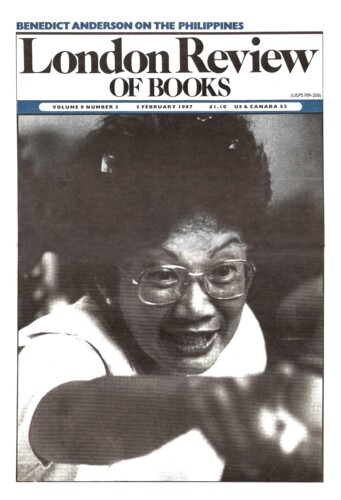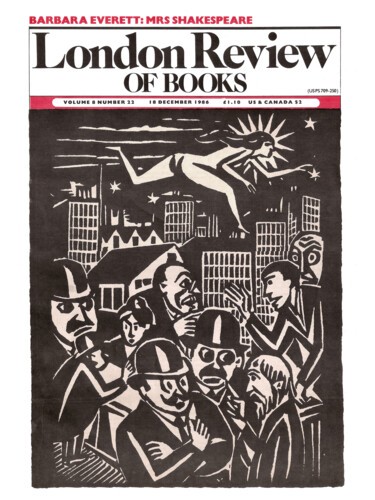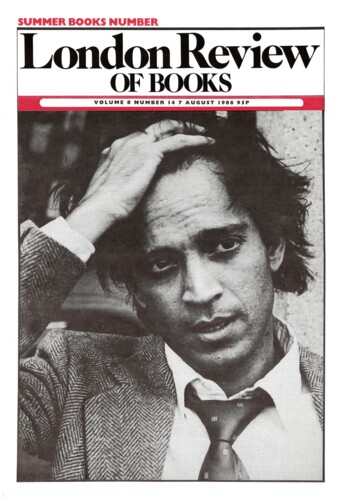Father Bosco to Africa
Walter Nash, 5 February 1987
Patrick McGinley’s pastoral parable, The Red Men, begins with Gulban Heron, rural overlord of a hotel, a shop and four sons. There is dark-haired Jack, capable, ruthless, dissolute, his father’s favourite, and there are three carrot-polled losers, the red men of the title: Cookie, a jaded man of letters, typically apt to give life a literary form and content; cynical Joey, with his fire-scarred face, who mistrusts the emotions and gives his mind to geology and shopkeeping; and Father Bosco, with his fire-damped soul, reminiscently plagued by lust and distressed by the loneliness of his calling. There is also Pauline, the brothers’ companion since childhood, who keeps the hotel books and is about to marry Jack.



